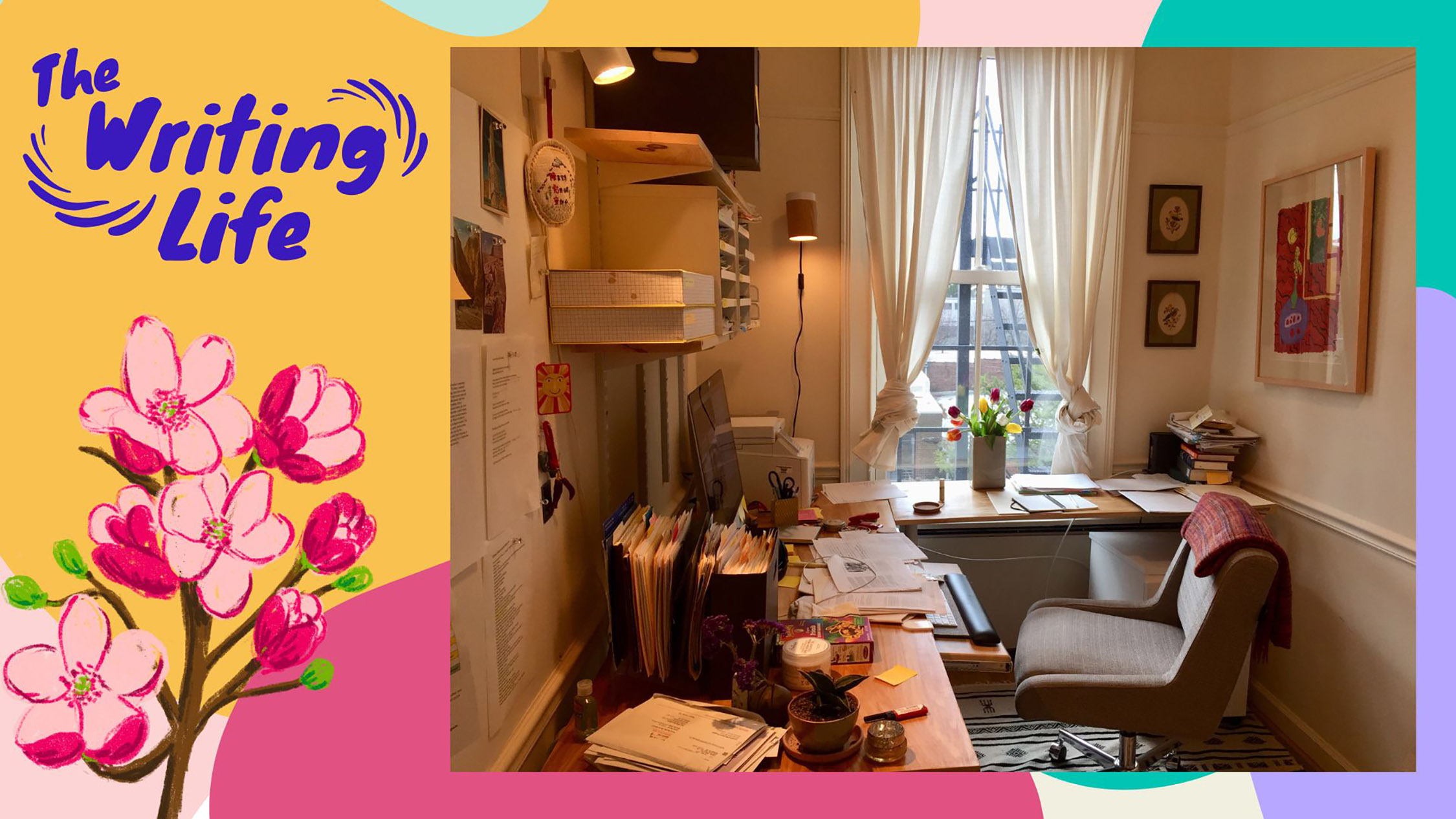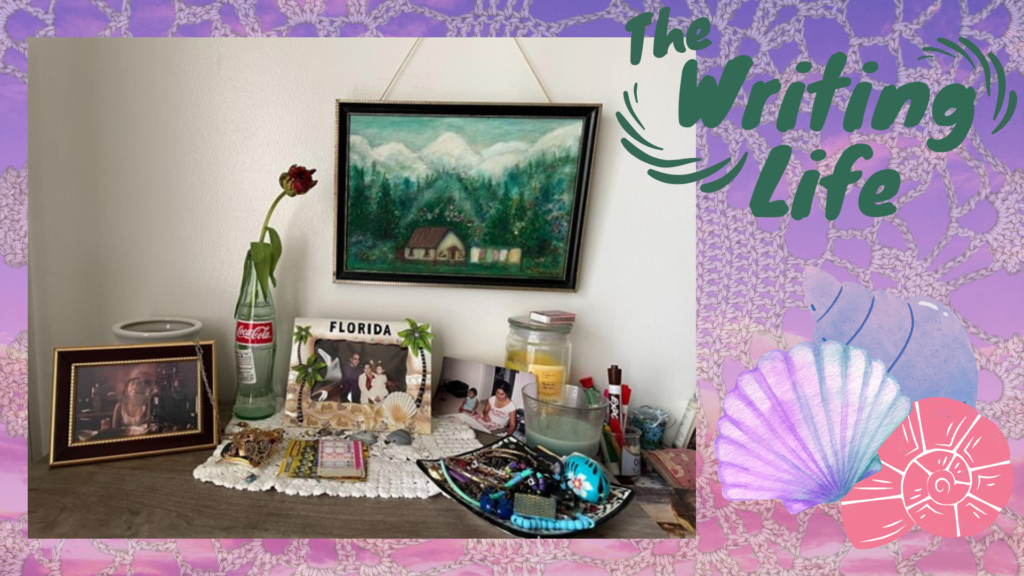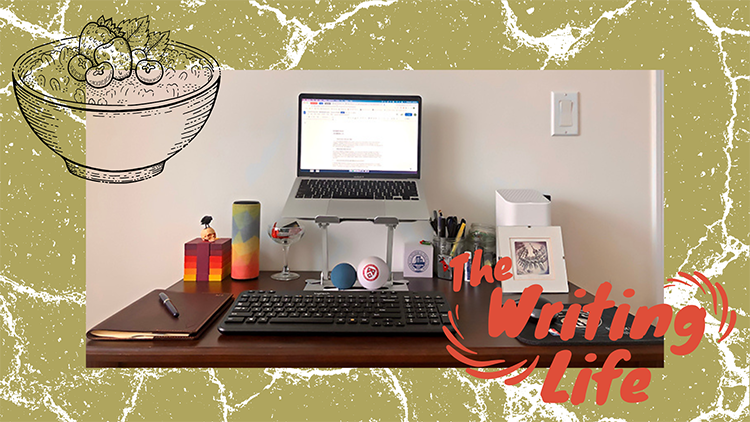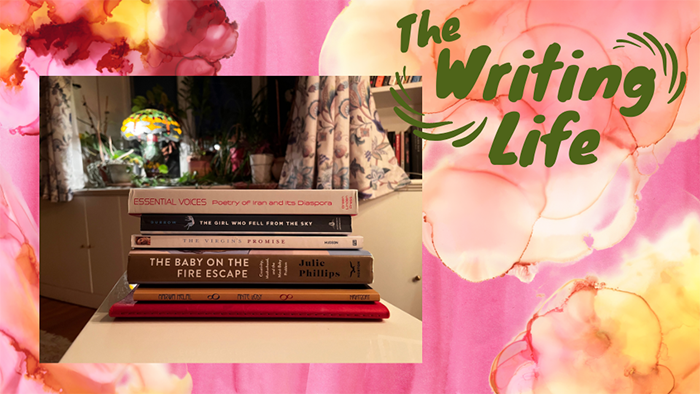Former Open City fellow Anelise Chen answers twelve questions about her writing life

July 7, 2022
“Writing is easy,” Pulitzer Prize–winning sportswriter Red Smith once said. “All you do is sit down at a typewriter and open your veins, and bleed.” Putting pen to paper (or fingers to a keyboard) is never a simple task, even for seasoned writers. Even our Margins and Open City Fellows—and there’s quite a handful of them—can attest to that. Many of them, though, have gone on to write and report for mainstream publications and publish books. In this series, we reached out to our former fellows and asked them to give us a glimpse of their writing lives and to share some tips on how they navigate this creative process called writing.
Anelise Chen is a 2012 Open City Fellow. She wrote a photo essay, “In Pictures: A Community Organization Leads Relief Efforts in Chinatown,” that portrayed how residents of the neighborhood coped with the aftermath of Hurricane Sandy in 2012. She dug up the reason why many immigrants start businesses rather than keep regular jobs in “The Story Behind Great Taste’s ‘Five Dumplings for a Dollar’ Deal.”
Anelise wrote mostly about the concerns of Chinatown folks and the issues affecting them, such as the impending closure of a supermarket in “Is Access to Affordable Food a Human Right? On the Closing of Lower Manhattan’s Pathmark,” and the New York City Department of Transportation’s regulation of bus companies in “The Day After the Chinatown Bus Shutdown.”
Her search for a New York City apartment led her to reflect on feeling like an outsider and an insider as an “Americanized” child of immigrants in “The Apartment Hunt.”
Here’s Anelise.
—Noel Pangilinan
1. What’s on your nightstand?
A huge pile of books and magazines because I never know what I’ll be in the mood for. Field guides with colorful pictures, great for flipping through before bed when I can’t absorb more words. Lip balm, water, mouth guard, baby aspirin.
These were all great reads recently:
Adrian Tomine’s The Loneliness of the Long-Distance Cartoonist
Sonia Shah’s The Next Great Migration
Eyal Press’s Dirty Work
Andrey Kurkov’s Death and the Penguin, translated from the Russian by George Bird
Akhil Sharma’s Family Life
2. If you had a superpower, what would it be? Why? And what would you do?
I always wish that I could be less doubtful, but then, would I still write? Without doubt I would only have certainty, and if I only had certainty, maybe I wouldn’t spend so much of my life sitting at the computer trying to figure out what I think. Maybe doubt is my weakness and my superpower?

3. What’s a typical day for you?
When I’m writing, my life is monotonous and isolating to the point where I think I might go crazy. I spend most of the day alone, and I don’t text or hang out with anyone or do anything stimulating because I’m afraid I’ll get distracted. I turn my phone off the night before and then hide it somewhere.
After breakfast, I write for four hours, then sometimes I take a break and keep going. But most days I can only manage one session. The rest of the day I’m thinking, reading, recuperating. I also need to exercise every day.
4. Coffee or tea? Why?
Tea. I would prefer to drink coffee, but my stomach can’t handle it anymore. The hour immediately after the first cup of coffee is always the best thing ever. Your mind is clear, your ideas are brilliant, and you’re pretty sure you’re a genius. Now if I drink coffee, I pay with stomach cramps, acid reflux, and heart palpitations.
5. Any writer who influenced you growing up?
Sandra Cisneros and her book The House on Mango Street. After we read that book in school, our teacher asked us to write our own story about the house where we lived. I had so much fun with that assignment. I actually made a book. I cut out cardboard covers and bound the pages using thread and glue and finished it with some marbleized wallpaper. It was one of the most memorable experiences I had as a kid, but it never occurred to me that I could try to do it for a living.
6. What book made you cry?
The last book that really made me cry was Julie Otsuka’s The Buddha in the Attic. It’s about the experience of the first picture brides who arrived from Japan to America. A number of them found they had been lied to and sold a false narrative, but they had no choice but to endure and survive. They were totally helpless and alone and stuck in a foreign country. Some of them couldn’t bridge the distance between themselves and their own Americanized children. Even their own children became strangers to them.

7. Do you have a writing ritual?
I’m always trying out new rituals because I feel I can’t afford to pass up any help if I can get it. If something works, then I will just do that until it stops working. Right now, my ritual involves “praying” in front of this xeroxed Guanyin photograph my dad made. I stand in front of the picture, and I pray for all the things I want, not just for the book, but everything. Then I do twenty squats in front of the picture.
8. How do you deal with writer’s block?
Take a break, go on a trip, shake things up, try something new. I’ve gotten over blocks by regrouting the bathroom. I’ve gotten over it by fixing my bike. My partner has a nursery, so now I go there to weed the plant beds or put stakes on baby trees or whatever needs to be done.
The best activity to deal with writer’s block is to go rock picking. You’re literally just picking rocks out of the dirt, putting them in a bucket, and hauling them away. It’s hard work. After a full day of doing that I’m usually more than willing to return to my desk.
9. What one thing would you give up to become a better writer?
What I’ve already given up! My twenties! My thirties! Sometimes I feel so sad that I’ve spent my time in the way that I’ve spent it, but unfortunately there’s no other way to be a writer except to be alone in a room.
10. What’s your favorite bookstore or library? Tell us why.
I love public libraries. Every time I bring someone young with me to the library, they seem amazed that this resource exists. It exists! No matter where you go—small towns, big cities—libraries are reliably amazing. You can borrow books and movies and music FOR FREE, and librarians are always eager to help. You can ask about a job, apply for a passport, get vaccines, take classes. You can drink water, go to the bathroom, take a nap. Right now, the library I frequent is next to the pool where I swim and it has a free EV station so I also charge my car for free. Long live libraries!
11. What are you working on now and what recent work are you proud of?
My mollusk book. I know nobody cares how much blood and sweat you poured into a book, but I really feel like I put everything I could into it. It might not be good, but I’m proud of it.
12. If you didn’t write, what would you do for work?
I would probably work for a nonprofit that helps to bring young people from underserved communities to the outdoors to learn about sustainability and environmental literacy. I know what a huge impact those opportunities had on me when I was younger, and I think it’s important to have those grounding experiences early on. I just learned that Julia Alvarez and her partner did something similar on their farm in the Dominican Republic. Even if I don’t stop writing, this is still something I’d ultimately like to do.
Other stories in The Writing Life series:
“That Which You Are Afraid to Write, Write It” by huiying b. chan
“Cut Down the Quotes . . . Include Only Gemlike Phrases” by E. Tammy Kim
“I Am Still Developing as a Writer” by Hannah Bae
“Write a Sentence—Any Sentence—No Matter How Bad It Is” by Astha Rajvanshi
“Intuition Is My Main Tool” by Chaya Babu
“Writer’s Block? What’s That?” by Humera Afridi



